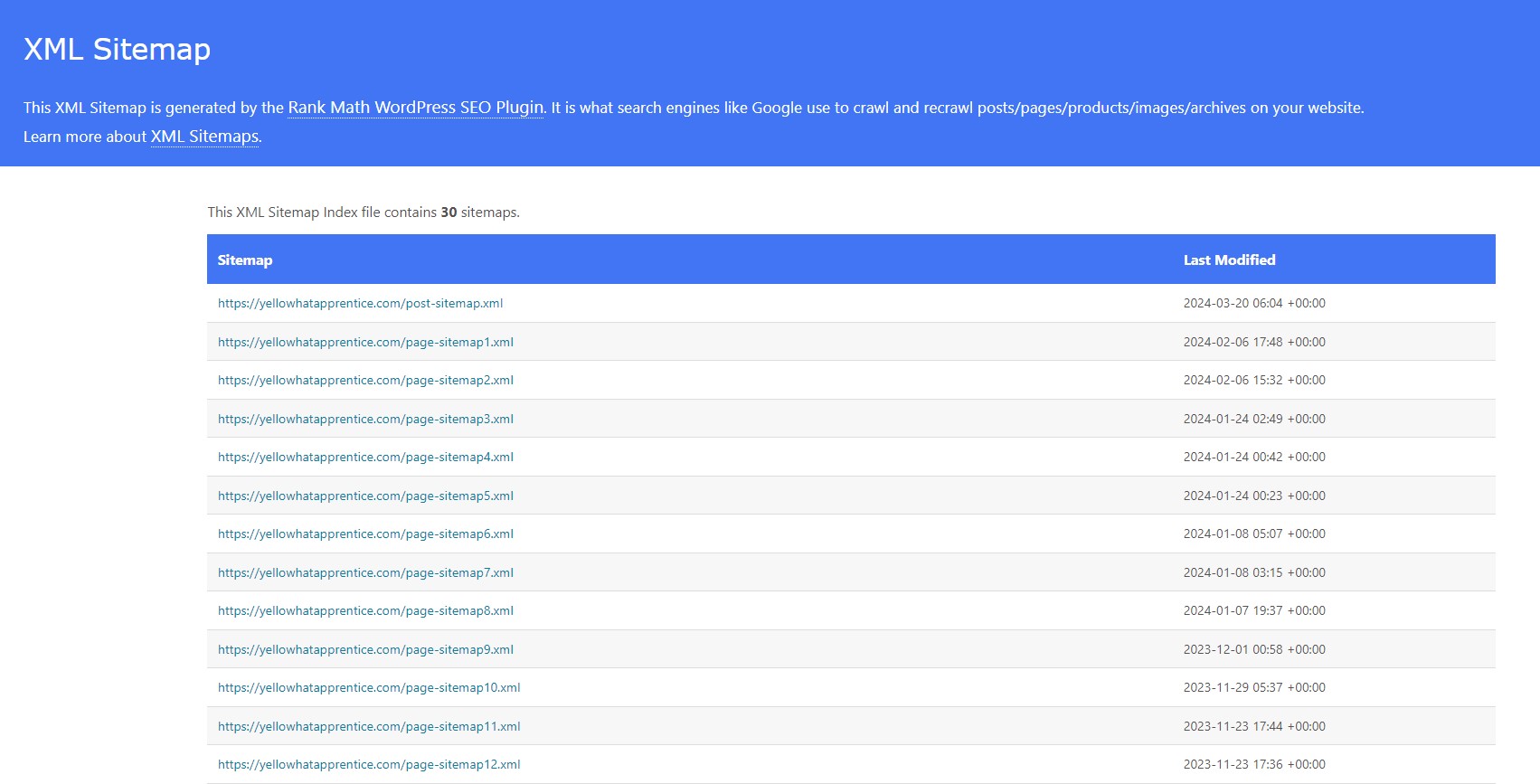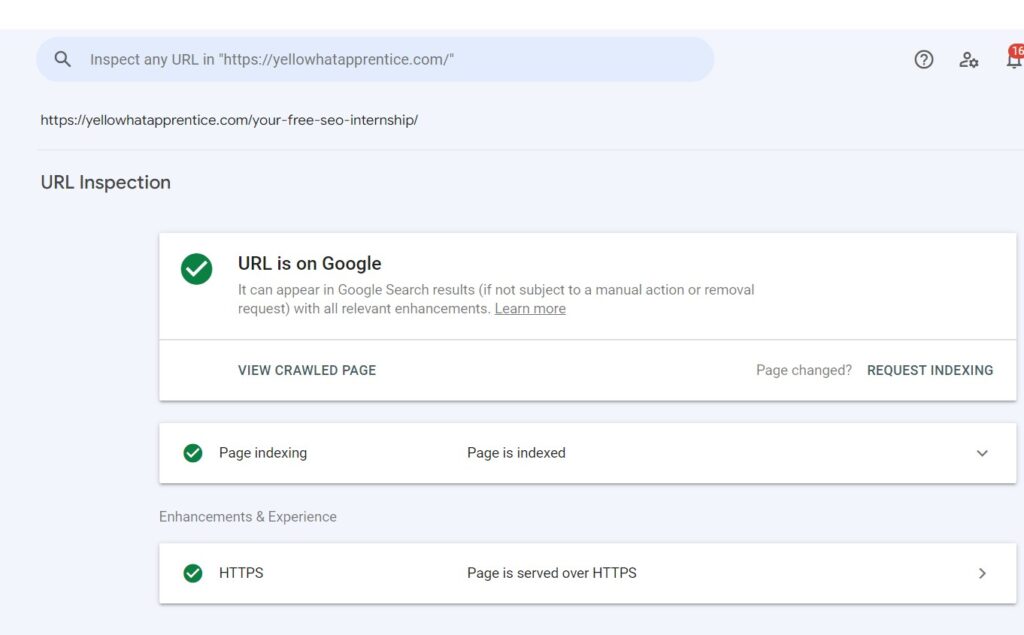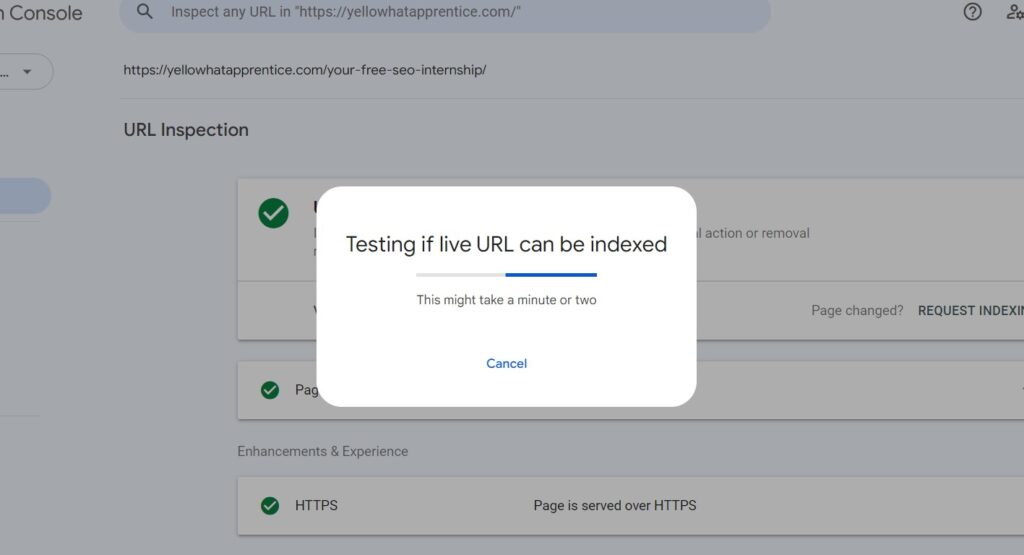Google Search Console Guide 2024 Understanding Indexing and Creating Your Sitemaps
March 20, 2024 | by John Corpuz

Learn how to index your website and create sitemaps with our 2024 Google Search Console guide.
Google Search Console offers insightful information about how Google indexes, crawls, and displays the pages on your website in its search results. The main elements of indexing in Google Search Console are broken out as follows:
Googlebot’s, commonly referred to as Google’s crawlers, visit websites on a regular basis in order to find and index fresh content. The “Coverage” report in Google Search Console lets you see how well Google has indexed the pages on your website. In addition to any crawl faults or problems preventing specific pages from being indexed, you can see the total number of pages that are indexed. By keeping an eye on the crawl coverage, you can make sure that Google is efficiently indexing the information on your website and that no technological problems are impeding the indexation of any pages.
Site blueprints:
#1: Google Search Console Guide: Sitemaps
A sitemap is a file that assists search engines with comprehending the organization and content of your website by listing every page. You can get Google to crawl and index every page on your website by submitting the sitemap through Google Search Console. Information about the progress of your submitted sitemap, including the quantity of indexed pages and any mistakes found during the crawling process, can be found in Google Search Console’s “Sitemaps” report. Retrieve as Google:


#2: Google Search Console Guide: Fetch as Google
With Google Search Console, you may mimic how Google views and crawls your webpages by using the “Fetch as Google” function. If you’ve made changes to your website and want to make sure Google’s index reflects them as soon as possible, you may use this tool to submit individual URLs for crawling.
You can also examine details about how Googlebot perceives your page, such as rendering or indexing problems, by using the “Fetch as Google” tool.
#3: Google Search Console Guide: URL Inspection
Google Search Console’s URL Inspection feature offers comprehensive details about a particular URL on your website. You can view the URL’s indexation status, the date and time of the latest crawl, and any problems with indexing or crawling that may have occurred. The URL Inspection tool also offers recommendations for enhancing the page’s visibility in search results, like adding structured data markup or resolving mobile usability problems.

#4 Google Search Console Guide: Index Coverage
You can see an overview of the number of pages on your website that are indexed as well as whether there are any issues impeding indexing by utilising Google Search Console’s “Index Coverage” report.
In addition to particular reasons (such crawl failures or robots.txt blocking) why pages might not be indexed, you can view the quantity of legitimate, excluded, and error pages. Keeping an eye on the index coverage enables you to spot and fix any indexing problems that might be affecting how visible your website is in search results.

Step 5: Implementing SEO Best Practices: Google Search Console Guide
- Optimize your website’s metadata, including title tags, meta descriptions, and headings, to improve click-through rates and relevance.
- Create high-quality, relevant content that addresses user intent and provides value to your audience.
- Build high-quality backlinks from reputable websites to improve your website’s authority and credibility.
To know more just visit the link to get the entire video
GSC Indexing, Checking Links and Creating Your Sitemaps | Yellow Hat Apprentice
With our help, you can set up Google Search Console, troubleshoot display difficulties with data, and optimize your SEO by following these steps.
Frequently Asked Questions (FAQs) : Google Search Console 2024
1. What is Google Search Console (GSC) and why is it important?
- Google Search Console is a free tool provided by Google that helps website owners monitor and optimize their site’s performance in Google search results. It provides valuable insights into how Google crawls, indexes, and ranks your website, allowing you to identify issues and improve your site’s visibility.
2. How do I set up Google Search Console for my website?
- To set up Google Search Console for your website:
- Sign in to your Google account or create one if you don’t have one already.
- Go to the Google Search Console website and click on “Start Now.”
- Add your website URL and verify ownership using one of the verification methods provided (HTML file upload, HTML tag, domain name provider, Google Analytics, or Google Tag Manager).
- Once verified, you’ll have access to your website’s data in Google Search Console.
3. What are some key features of Google Search Console?
- Some key features of Google Search Console include:
- Performance reports: Insights into your website’s search performance, including clicks, impressions, click-through rates, and average position.
- Index coverage: Information about the indexing status of your website’s pages and any crawl errors or issues.
- URL inspection: Detailed information about a specific URL, including indexing status, crawling issues, and mobile usability.
- Sitemaps: Submitting XML sitemaps to help Google crawl and index your website more effectively.
- Mobile usability: Alerts and insights into mobile usability issues on your website.
4. How can I use Google Search Console to improve my website’s performance?
- You can use Google Search Console to improve your website’s performance by:
- Monitoring your website’s search performance and identifying opportunities for improvement.
- Checking for crawl errors and fixing any issues that may prevent Google from properly indexing your website.
- Submitting XML sitemaps to ensure that Google crawls and indexes all the pages on your website.
- Optimizing your website’s mobile usability to provide a better experience for mobile users.
- Using the URL inspection tool to troubleshoot specific URLs and address any indexing or crawling issues.
5. What should I do if I encounter errors or issues in Google Search Console?
- If you encounter errors or issues in Google Search Console, such as crawl errors or indexing issues, you should:
- Review the details of the error or issue to understand the cause.
- Take appropriate action to fix the error or issue, such as resolving crawl errors, fixing broken links, or updating robots.txt directives.
- Monitor the impact of your actions in Google Search Console to ensure that the issue is resolved and that your website’s performance improves.
6. How often should I check Google Search Console?
- It’s recommended to check Google Search Console regularly to monitor your website’s performance, identify any issues or errors, and track the impact of your optimizations. Depending on the size and complexity of your website, you may want to check Google Search Console weekly or monthly to stay informed about changes and trends.
7. Can I use Google Search Console for keyword research?
- While Google Search Console primarily focuses on providing insights into your website’s performance in Google search results, you can use the performance reports to identify relevant search queries and keywords that drive traffic to your website. By analyzing clicks, impressions, and click-through rates for specific queries, you can uncover keyword opportunities and optimize your content accordingly.
8. How can I stay updated on changes and new features in Google Search Console?
- You can stay updated on changes and new features in Google Search Console by:
- Following the Google Webmasters blog and official Google Webmasters accounts on social media.
- Checking the “What’s new” section in Google Search Console for announcements and updates.
- Participating in Google Webmaster Central Office Hours Hangouts and webinars for insights and guidance from Google experts.
- Engaging with the Google Search Central Help Community for support and advice from fellow webmasters and SEO professionals.
9. Is Google Search Console compatible with other tools and platforms?
- Yes, Google Search Console is compatible with other tools and platforms, such as Google Analytics, Google Tag Manager, and various SEO software and analytics tools. You can integrate Google Search Console with these tools to enhance your website monitoring and optimization efforts and gain deeper insights into your website’s performance and user behavior.
10. How can I leverage Google Search Console for SEO and website optimization in 2024?
- To leverage Google Search Console for SEO and website optimization in 2024, you should:
- Regularly monitor your website’s search performance and identify opportunities for improvement.
- Address any crawl errors or indexing issues promptly to ensure that your website is properly indexed and visible in Google search results.
- Optimize your website’s mobile usability to provide a seamless experience for mobile users.
- Submit XML sitemaps and use the URL inspection tool to ensure that Google crawls and indexes all the pages on your website.
- Stay informed about changes and updates in Google Search Console and adapt your optimization strategies accordingly to maintain and improve your website’s performance in search results.
Free SEO Tools for SEO Freelancers
The top free SEO tools on the market have been selected by me. These tools are quick, easy to use, free, and meet a variety of needs. This collection contains helpful tools that can assist you with keyword research, competitor analysis, and website optimisation. Select one or more of the best free SEO tools available to improve your SEO efforts right now. I’ve chosen the best options available. These resources are quick, simple to use, cost-free, and suitable for many purposes. You can use the useful tools in this collection to help with competitor analysis, keyword research, and website optimization. Select one or more tools to help you with your SEO efforts immediately.
Using Google Search Console, a free SEO tool, you may enhance your website’s visibility in search results. It gives you details on how Google sees and crawls your website, enabling you to spot and fix any potential problems. By monitoring indicators like average position, click-through rates, and search impressions with Google Search Console, you can optimise your website for better visibility and ranks. Furthermore, you can support your link-building efforts and boost search engine authority by analysing and monitoring your website’s backlink profile with simplicity thanks to tools like Ahrefs’ Backlink Checker and Moz’s Link Explorer.
RELATED POSTS
View all

